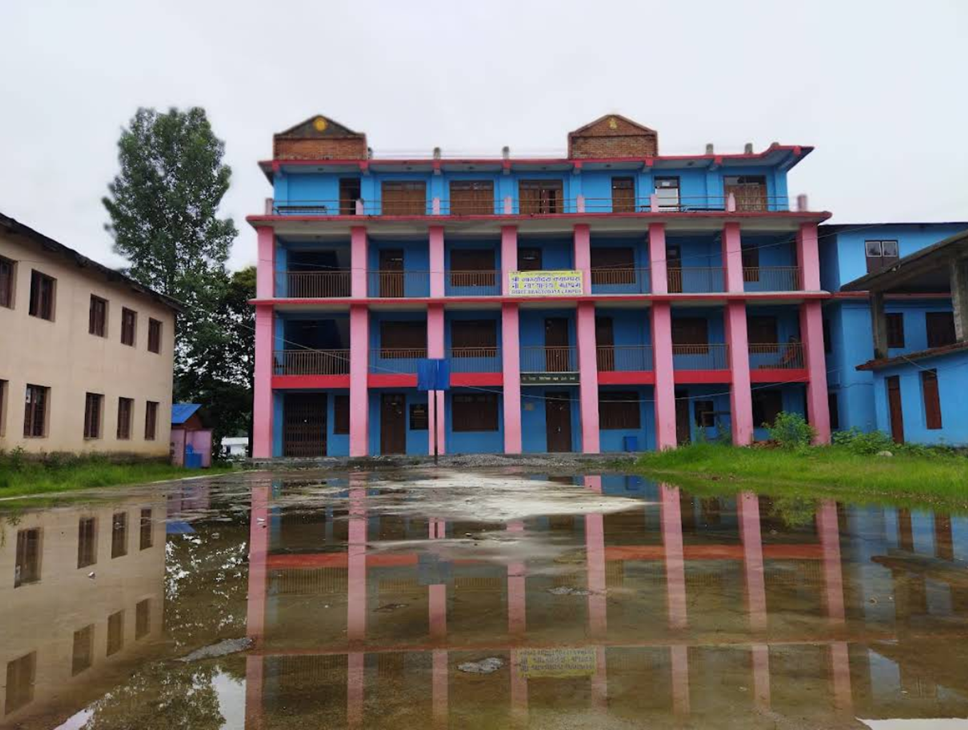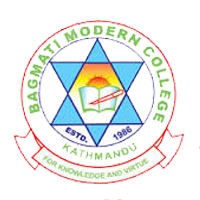Overview
Bhagyodaya Campus is a community campus in Shankharapur-06, Sankhu, Kathmandu, affiliated with Tribhuvan University (TU). It offers Bachelor of Business Studies (BBS) and Bachelor of Education (B.Ed.).
The campus operates under Shankharapur Municipality, reflecting a public mandate to expand access to bachelor-level study in management and teacher education for learners in and around Sankhu and the wider Kathmandu Valley.

Quick Highlights
-
Location: Shankharapur-06, Sankhu, Kathmandu, Nepal
-
Ownership and governance: Municipal undertaking of Shankharapur Municipality
-
Affiliation: Tribhuvan University (TU)
-
Establishment: 2002 by the local community; transferred to municipal stewardship in 2021
-
Current programs: BBS (Management) and B.Ed. (Education), four-year level under TU
-
Learning supports: Library and digital resources, guest lectures, seminars, workshops
-
Practical exposure: Internships for BBS; school practice and field work for B.Ed.
-
Sports integration: Basketball, volleyball, kho kho, badminton, table tennis, track and field (linked to B.Ed.)
-
Scholarships: Merit-based opportunities as per campus notices
-
Collaboration: TU, Lumbini Buddhist University, Khopa College (Bhaktapur)
Introduction
Founded in 2002 through a local initiative, Bhagyodaya Campus was created to provide nearby access to bachelor-level study. A Special General Assembly in December 2020 resolved to place the campus under the municipality; the formal handover took place in June 2021. This step clarified public oversight and helped align campus operations with local education priorities.
The campus focuses on two TU-affiliated programs. BBS centers on core business fields such as accounting, finance, and management. B.Ed. prepares secondary-level teachers with classroom study, field-based practicum, and practice teaching. Delivery mixes lectures, guided discussion, assignments, and exposure to work settings relevant to each program.
Academic Programs Offered
Bachelor of Business Studies (BBS)
BBS is a four-year undergraduate program under TU. It builds a foundation in accounting, finance, economics, statistics, business law, and organizational practice. Students develop quantitative habits through coursework in statistics and finance, and learn written and oral communication for office and business contexts.
Learning focus
-
Core understanding of business and administration aligned with TU curricula
-
Practical orientation through talks, field visits, and internship links with banks and firms
-
Emphasis on record-keeping, basic financial analysis, and office systems
-
Preparation for entry-level roles in accounting support, banking operations, sales coordination, and administration
-
Pathway to postgraduate study (e.g., MBS) or other professional routes, as individual goals require
Graduate scope
Graduates commonly work in finance and accounts support, front-office roles, banking assistance, and small business operations. Some pursue civil service preparation or master’s study.
Bachelor of Education (B.Ed.)
B.Ed. is a four-year TU program aimed at future secondary-level teachers. Students study pedagogy, assessment, classroom management, and subject method courses. The program combines campus-based learning with practice teaching and field-based tasks.
Subject areas and practicum
-
Major: Health and Physical Education
-
Minor: Population Education or Educational Planning and Management
-
Practice teaching in partner schools with lesson planning, supervision, and reflection
-
Sports and games training relevant to school-level physical education: basketball, volleyball, kho kho, badminton, table tennis, and track and field
Graduate scope
B.Ed. graduates are prepared for teaching roles in public and private secondary schools. With knowledge of educational planning and management, graduates may also support coordination and administrative roles in schools. Many continue to advanced study in education.
Proposed Programs (under consideration)
The campus has listed interest in expanding offerings, subject to affiliation and approval: BSc CSIT, BBA, BCA, BIT, BIM, BSW, BTTM, B.Sc. Ag, BALLB, BICTE, MBS, and B.Sc./M.Sc. Agroforestry. Any new launch depends on regulatory clearance and resources.
Admission Process
Eligibility
BBS
-
Completion of 10+2 or equivalent in Management, as per TU norms
B.Ed.
-
Completion of 10+2 or equivalent in Education/Management/Humanities/CTEVT with at least C grade (GPA ≥ 2.01), as per TU norms in force
Steps to apply
-
Obtain the application form from the campus office or website (if available).
-
Attach required documents: mark sheets/transcripts, character certificate, copy of citizenship (or passport), and recent photographs.
-
Submit the form within the announced deadline.
-
Follow campus notices for orientation or any interview.
-
Confirm admission by completing fee payment and registration.
Selection
Selection follows TU regulations and seat availability. If applications exceed seats, merit-based shortlisting is applied. B.Ed. practice school placements are coordinated by the program office when students reach the practicum stage.
Teaching Faculty and Learning Methodology
Faculty members from management and education backgrounds conduct classes and guide academic tasks. Sessions follow TU course outlines and combine lectures, guided discussions, case-based tasks, presentations, and assignments. Guest speakers and workshops provide exposure to workplace practice and current topics in education.
Academic supports
-
Library and digital resources for course readings
-
Guest lectures and seminars during the semester
-
Workshops on academic writing and presentations
-
Faculty office hours for student queries
Academic leadership
-
Campus Chief: Baudha Raj Niraula
-
Assistant Campus Chiefs: Birendra Prasad Shrestha; Shailendra Kumar Shah
-
Library, accounts, and administrative functions are handled by designated staff to support students with circulation, certification, and records.
Infrastructure and Learning Facilities
Library and digital access
-
Textbooks and reference materials in management and education
-
Digital reading options and e-resources where available
-
Reading spaces for silent study and small-group work
Classrooms and teaching aids
-
Classrooms suitable for lectures and group activity
-
Access to online resources for selected courses and orientations
-
Seminar or workshop spaces for presentations and training
Practice and field exposure
-
Practice teaching in partner schools (B.Ed.)
-
Field visits or observational studies linked to course needs
-
Internships for BBS in coordination with local organizations
Student Life and Campus Experience
Students come from Sankhu and other parts of the municipality, with commuters from elsewhere in the Valley.
The campus environment reflects a community setting with close contact between students and teachers, fixed academic calendars, and notices that guide registration, assessment, and field activities.
Many students manage study alongside part-time work or family roles; the campus communicates schedules early to help with planning.
Student support
-
Admission and registration guidance during intake
-
Library orientation for first-year students
-
Notices on practice teaching, internships, workshops, and examinations
-
Faculty guidance for routine course issues
Extracurricular Activities (ECA)
Activities support health, teamwork, and social skills.
-
Court and field sports: basketball, volleyball, badminton, table tennis, kho kho, track and field
-
Educational excursions and local field tasks
-
Student participation in seminars and campus events
These activities complement classroom learning and are especially relevant to B.Ed. majors in Health and Physical Education.
Scholarships and Financial Support
The campus provides merit-based scholarships subject to policy and seat availability. Notices specify criteria such as GPA, class performance, or entrance merit (if applicable). Students with financial constraints can meet the administration to discuss available options and any municipality-linked support.
How to apply
-
Watch campus boards and website for scholarship calls
-
Submit documents (transcripts and other evidence) within deadlines
-
Keep copies of all submissions
Achievements and Institutional Milestones
-
2002: Establishment by the Sankhu community to address local demand for bachelor-level study
-
2012: Launch of B.Ed. under TU, adding to the existing BBS program
-
4 December 2020: Special General Assembly resolution to hand over the campus to Shankharapur Municipality
-
16 June 2021: Formal handover to the municipality
These milestones show a steady shift toward public oversight and service to local learners.
Governance and Collaboration
Bhagyodaya Campus functions as an undertaking of Shankharapur Municipality. The management committee is led by the Mayor. Affiliation with Tribhuvan University gives curricular and examination oversight. Reported collaboration with Lumbini Buddhist University and Khopa College supports academic exposure and exchange where relevant.
This arrangement supports transparency for audits, accreditation reviews, and stakeholders such as NGOs/INGOs that require verified information on programs and outcomes.
Why Choose This Institution?
-
Public stewardship and community roots - The campus serves local learners with a focus on access and reliability.
-
Focused program mix - Two clear pathways—BBS and B.Ed.—help students plan with available advising and practicum support.
-
Field and workplace exposure - Internships for BBS and school practice for B.Ed. connect classroom study to real settings.
-
Learning support - Library, digital resources, seminars, and workshops help students keep up with course requirements.
-
Pathways ahead - Graduates move into entry-level roles in business or teaching, prepare for civil service, or pursue master’s study.
Admission Checklist
-
Confirm eligibility for BBS or B.Ed. under TU norms
-
Prepare copies of transcripts, character certificate, citizenship (or passport), and photographs
-
Submit the application within the stated deadline
-
Track notices for orientation, interviews (if any), and scholarship windows
-
Complete fee payment and registration on time
Conclusion
Bhagyodaya Campus is a TU-affiliated community campus serving Sankhu and the surrounding area. Its two programs—BBS and B.Ed.—offer recognized undergraduate routes with field exposure, practice teaching, seminars, and library support. Under municipal stewardship, the campus maintains a public orientation and a practical focus on local education needs.
Contact Bhagyodaya Campus's administrative office for detailed information on the course, admissions, location, fees, scholarships, facilities, counseling or eligibility.
Contact Details
Bhagyodaya Campus
Location: Sankhu, Kathmandu, Nepal
Email Address: sankhu@bhagyodayacollege.edu.np
Phone Number: +977-9841237825, +977-1-4451355
Website: https://bhagyodayac.edu.np

















